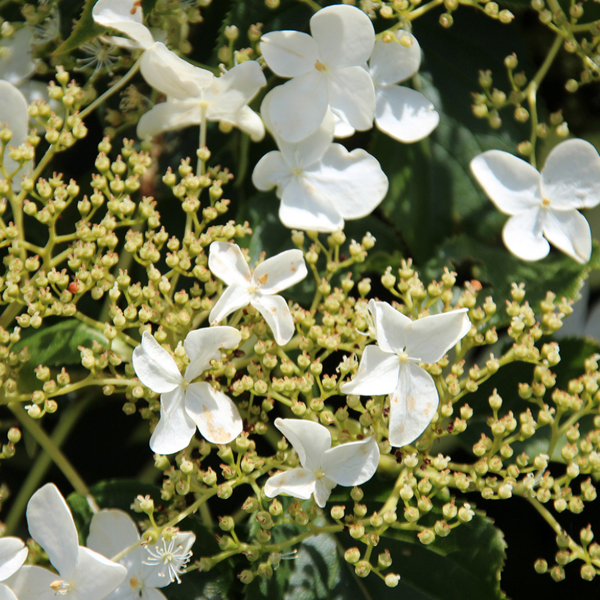
Hydrangea anomala 'Take a Chance' SlovenskeTrvalky.sk
Climbing Hydrangea ( H. anomala petiolaris) will grow and flower even in a northern exposure. This large, heavy vine has lateral branches that will grow out as much as 3′ from the supporting structure. It is superb for growing up the trunk of large shade trees, walls, or along a stonewall. The reddish brown, peeling bark is attractive in winter.
Hortensja pnąca TAKE A CHANCE Hydrangea anomala 11388075480 oficjalne archiwum Allegro
H. anomala are self-clinging deciduous vine that produces large, flat clusters of flowers. Domed clusters of lacy white flowers are produced in spring. Attractive dark green foliage, to 5 inches long turns yellow in fall. Thrives in shade. Excellent trained against north wall where there is little planting space.

Climbing Hydrangea Climbing hydrangea, Hydrangea petiolaris, Garden vines
Water needs: Water deeply and regularly until established. Soil: Rich, well-draining soils. Size: 30 to 60 feet long, 5 to 6 feet wide. Climbing hydrangeas start out slow and shrubby. Be patient. Once established, they grow vigorously—one plant can rapidly cover a multi-story house or structure.
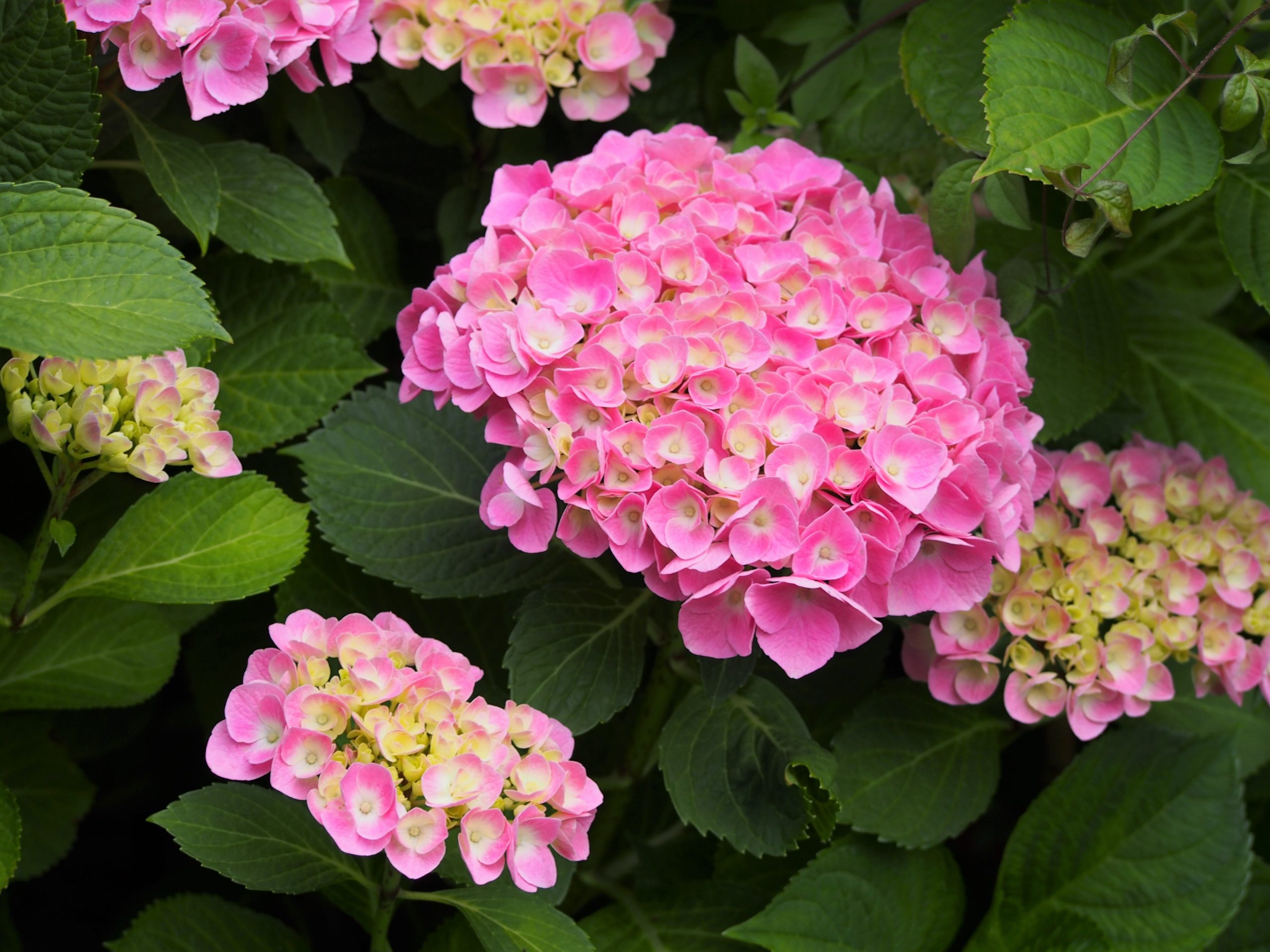
Hortenzia popínavá Hydrangea anomala Take a Chance® Záhradkovo.eu
Noteworthy Characteristics. Hydrangea anomala, commonly known as climbing hydrangea, is a vigorous, sprawling, deciduous, woody vine that clings and climbs by twining and aerial rootlets along the stems, typically maturing over time to 30-40' long.Horizontal lateral branching often extends several feet beyond supporting structures. Unsupported vines sometimes will grow in the form of a.
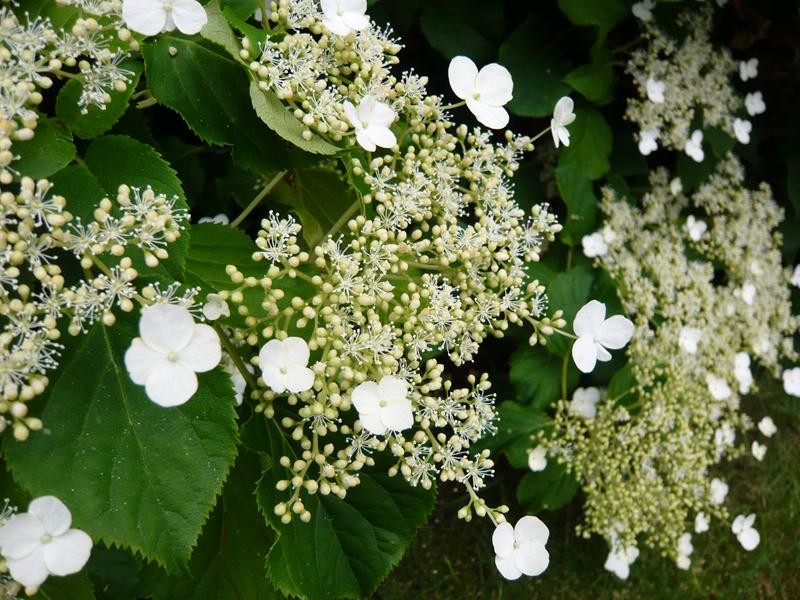
Hydrangea anomala petiolaris
Climbing hydrangea (Hydrangea anomala) Care Guide. Climbing hydrangea is named for its growth form, as its aerial rootlets allow it to climb walls, trees, and other structures. It can be grown in shady corners and has good resistance to rabbits and drought. Its bark has a history of use as a writing medium. Note, however, that this plant is moderately toxic when ingested.
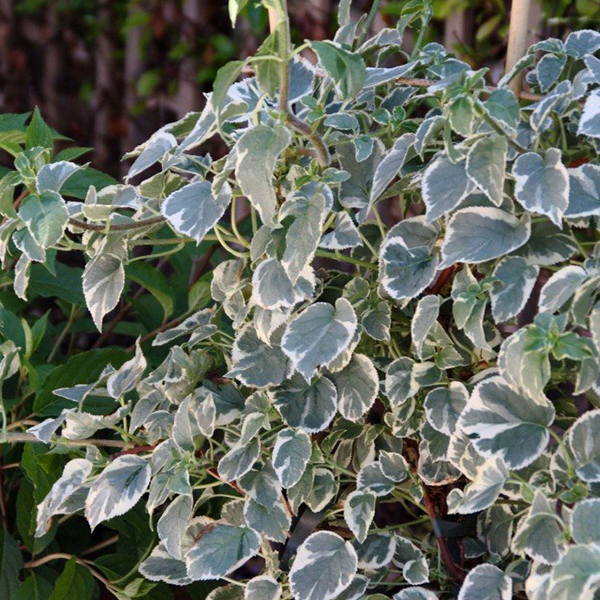
Hydrangea anomala 'Take a Chance' SlovenskeTrvalky.sk
Yes! Hydrangea macrophylla, or bigleaf hydrangea, and to a certain extent H. serrata, will react to the pH of your soil as well as the level of aluminum in your soil by changing color.Soils that are more acidic, below 5.5 pH, will favor blue flowers by allowing the hydrangea to absorb more aluminum.Whereas soils that are above 6.5 pH, or "sweet" soils, will produce pink flowers on your.

Hydrangea anomala 'Take a Chance' Hortensja pnąca
Climbing hydrangea is the popular name for several different species of closely-related woody and flowering vines. These plants belong to the Hydrangeaceae family of flowering plants, and their genus, Hydrangea contains around 75 members. Most of these are shrubs and trees, while a few are lianas — woody, soil-rooted vines with long stems, and which may be evergreen or deciduous.
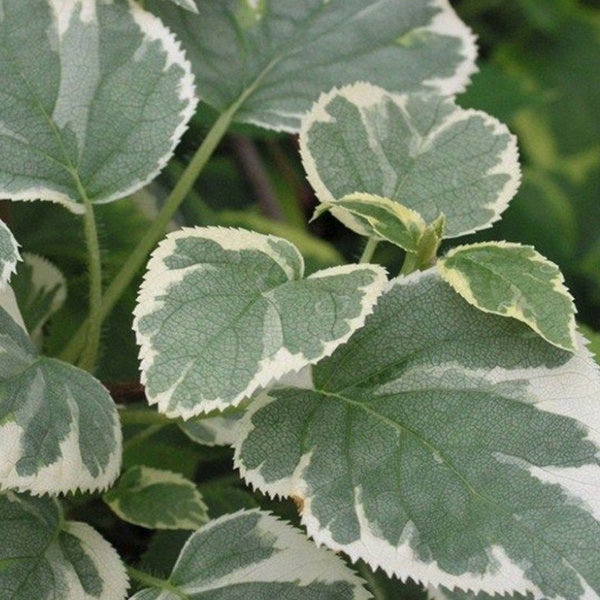
Hydrangea anomala 'Take a Chance' SlovenskeTrvalky.sk
Climbing hydrangea (Hydrangea anomala subsp. petiolaris) The climbing hydrangea adds a different dimension to your hydrangea collection. It clings to rough surfaces with root-like holdfasts. Grow it in full sun or shade with rich moist well-drained soil. Be patient as it can take years before the first flowers appear.

Hortensja pnąca TAKE A CHANCE® Hydrangea anomala
Free Shipping Available. Buy Top Products On eBay. Money Back Guarantee!

Climbing Hydrangea (hydrangea anomala petiolaris) This appears to be a climbing hydrangea that
Huge Selection of Hydrangea Plants. Superior Quality, Great Prices!

climbing.hydrangea.stone.arch Climbing hydrangea, Hydrangea garden, Climbing plants
Scrape some of the bark off of the branch, exposing some growth points. Next, dig a shallow hole a few inches deep and lay the hydrangea branch in it. Backfill the hole, and cover the branch with garden soil. Use a brick or stone from your garden to keep the branch in place. Keep the area watered.
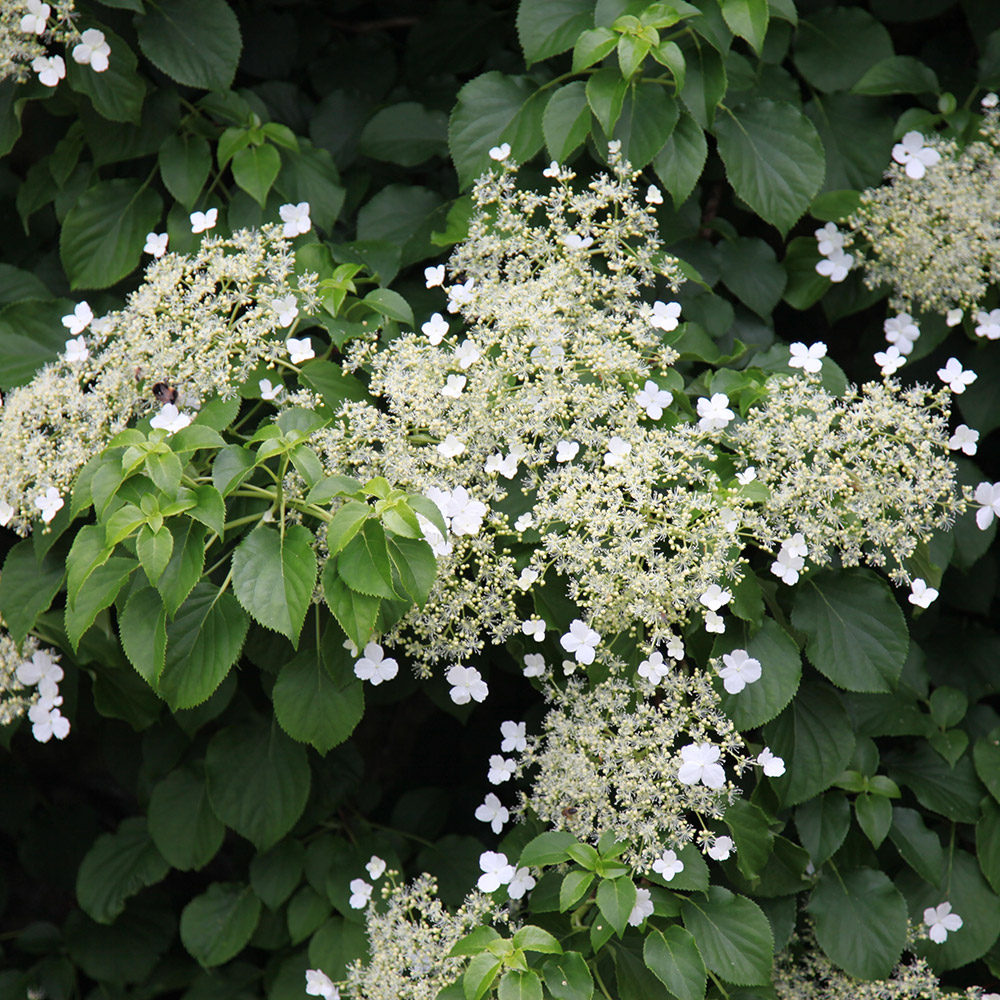
Buy climbing hydrangea Hydrangea anomala subsp. 'petiolaris' Delivery by Waitrose Garden in
Let's take a closer look. 1. Hydrangea Anomala subsp. Petiolaris. This is a climbing hydrangea known for its beautiful white flowers and lush foliage. This climbing plant can grow up to 30-80 feet tall. It prefers partial to full shade and moist, well-draining soil. The Hydrangea anomala subsp. Petiolaris can be grown in USDA hardiness zones.
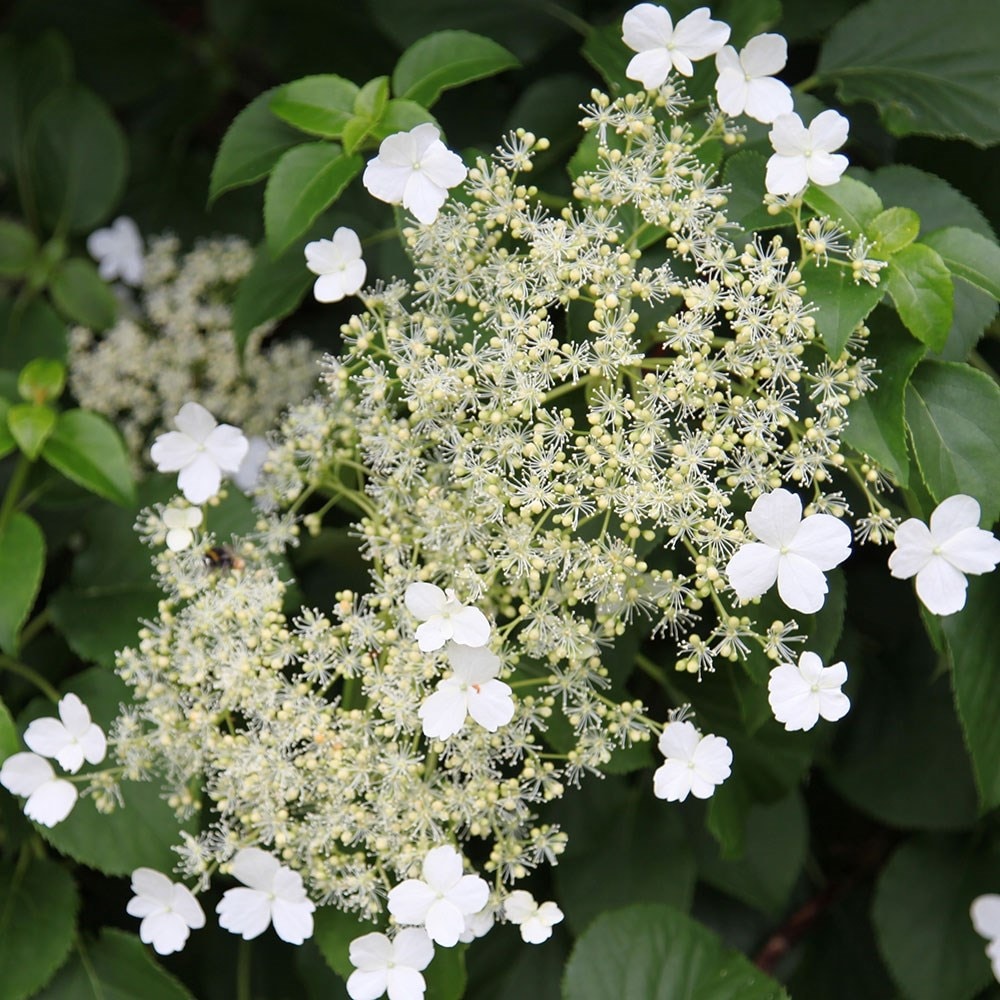
Buy climbing hydrangea Hydrangea anomala subsp. petiolaris £9.99 Delivery by Crocus
Hydrangea anomala TAKE A CHANCE - Climbing Hydrangea Availability: available. Dispatched within: 3 - 5 working days. Delivery: The price does not include any possible payment costs check the delivery methods. Pot size: C2 (2L) Price: 35,90 zł 35.90.
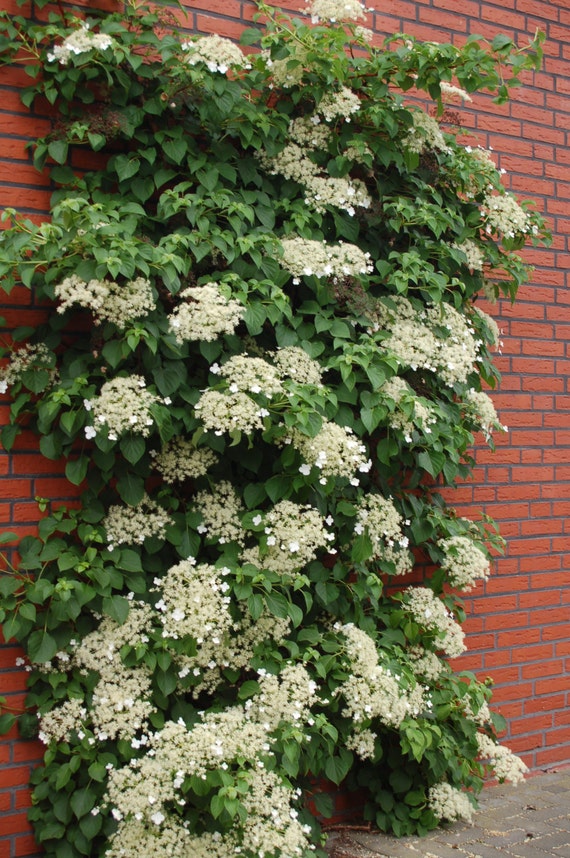
Climbing Hydrangea Seeds HYDRANGEA anomala Petiolaris Etsy
Climbing Hydrangea, Hydrangea petiolaris, Hydrangea scandens Maxim. Native to Asia, Hydrangea anomala subsp. petiolaris (Climbing Hydrangea) is a vigorous, large, deciduous climber that clings by aerial rootlets along the stems. Masses of fragrant white flowers held in flattened clusters, up to 8 in. across (20 cm), appear in late spring to.
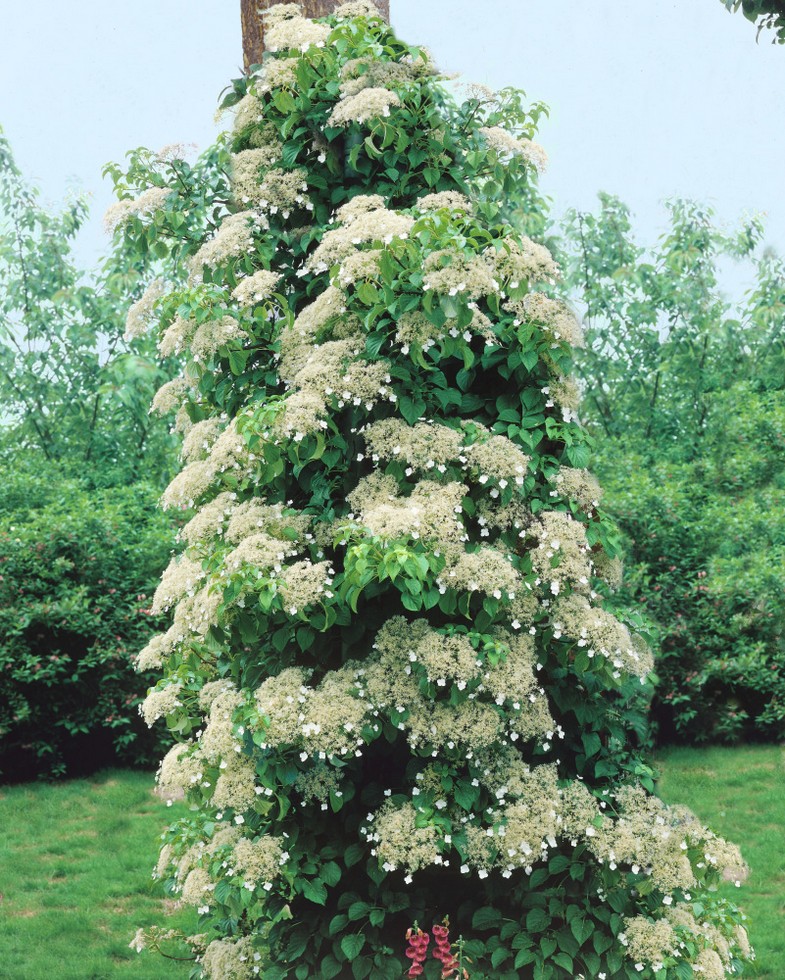
Hydrangea anomala petiolaris , Popínavá hortenzie, 2030 cm, K9
Hydrangea anomala (also called Climbing Hydrangea, among many other common names) is a deciduous climber native to Japan. It has small, white flowers that bloom in the summer and its leaves turn red in the fall. It is found in forests, woodlands, and along streams in its native region.
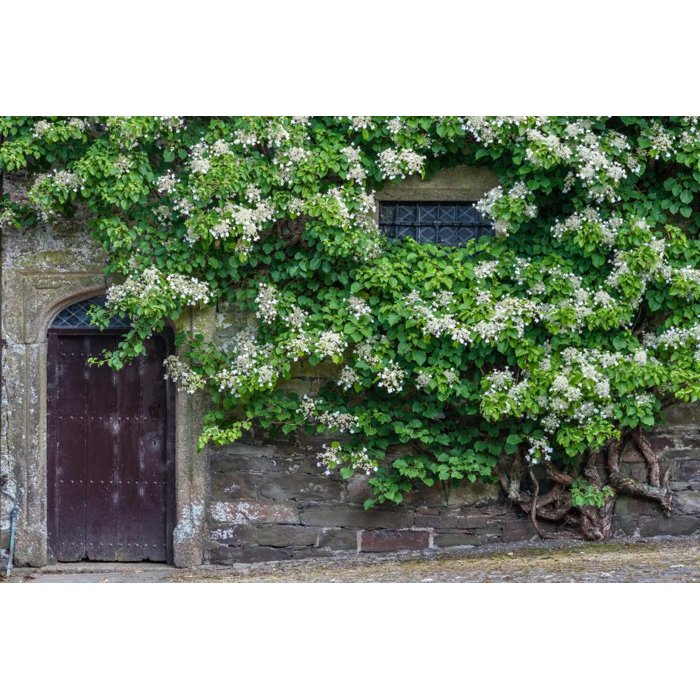
Hortenzia popínavá Hydrangea anomala ´Take a Chance´ Co2L 40+ MAX GARDEN záhradné centrum
Hydrangea anomala, the Japanese climbing-hydrangea, is a species of flowering plant in the family Hydrangeaceae native to the woodlands of the Himalaya, southern and central China and northern Myanmar.. It is a woody climbing plant, growing to 12 m height up trees or rock faces, climbing by means of small aerial roots on the stems.The leaves are deciduous, ovate, 7-13 cm long and 4-10 cm.